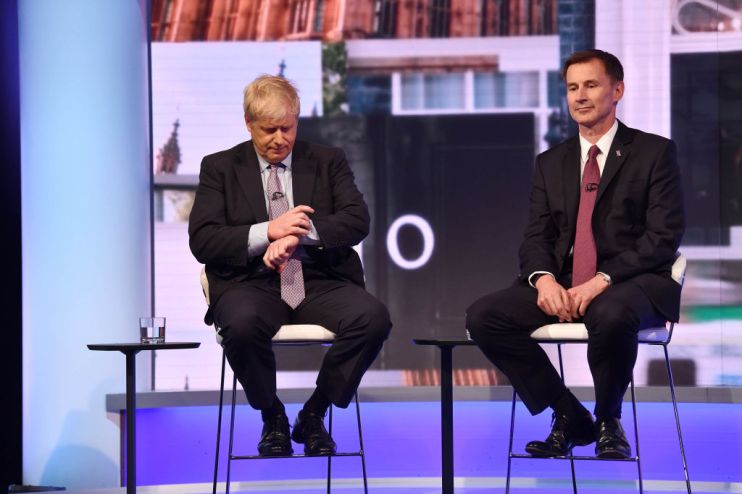There’s no ‘war chest’ for extra spending, watchdog warns PM hopefuls

Boris Johnson and Jeremy Hunt have been warned there is no “war-chest or pot of money” that would make big spending increases “a free lunch” by the UK’s budget watchdog.
Read more: No-deal Brexit could cause ‘full blown’ recession in 2020
The Office for Budget Responsibility (OBR) said today that the next prime minister must understand “that additional tax cuts or spending increases would push government borrowing and debt up”.
Both Johnson and Hunt have made pledges to cut taxes and increase spending if they should become PM next week. Johnson, the frontrunner, said he would cut tax for millions of high earners, for example.
These “uncosted proposals” could “add tens of billions of pounds to borrowing if they are all fully implemented,” said OBR chairman Robert Chote.
Chote said there is room to borrow an extra £25bn a year in the medium term and still keep debt falling as a share of GDP, although Johnson and Hunt’s plans could go beyond that.
Current chancellor Philip Hammond has called this capacity to borrow “fiscal headroom” but has said it should only be spent if it is needed to support the economy during a turbulent no-deal Brexit.
Crashing out of the European Union without a deal could push the government to borrow £30bn a year extra to cope with falling tax receipts, the OBR said today. This would eliminate any fiscal headroom, meaning extra spending would push up debt as a share of GDP.
“A more disruptive or disorderly scenario… could hit the public finances much harder,” the budget watchdog said.
Hammond told Sky News today: “I greatly fear the impact on our economy and our public finances of the kind of no deal Brexit that is realistically being discussed now.”
MP and hard-Brexiter Jacob Rees-Mogg yesterday described Hammond’s negative view of a no-deal Brexit as “pure silliness”.
Read more: Hammond vows to block no-deal Brexit
The chancellor hit back in a tweet, saying it was “terrifying that someone this close to a potential future government can think we’d actually be better off by adding barriers to access to our largest market”.
(Image credit: Getty)